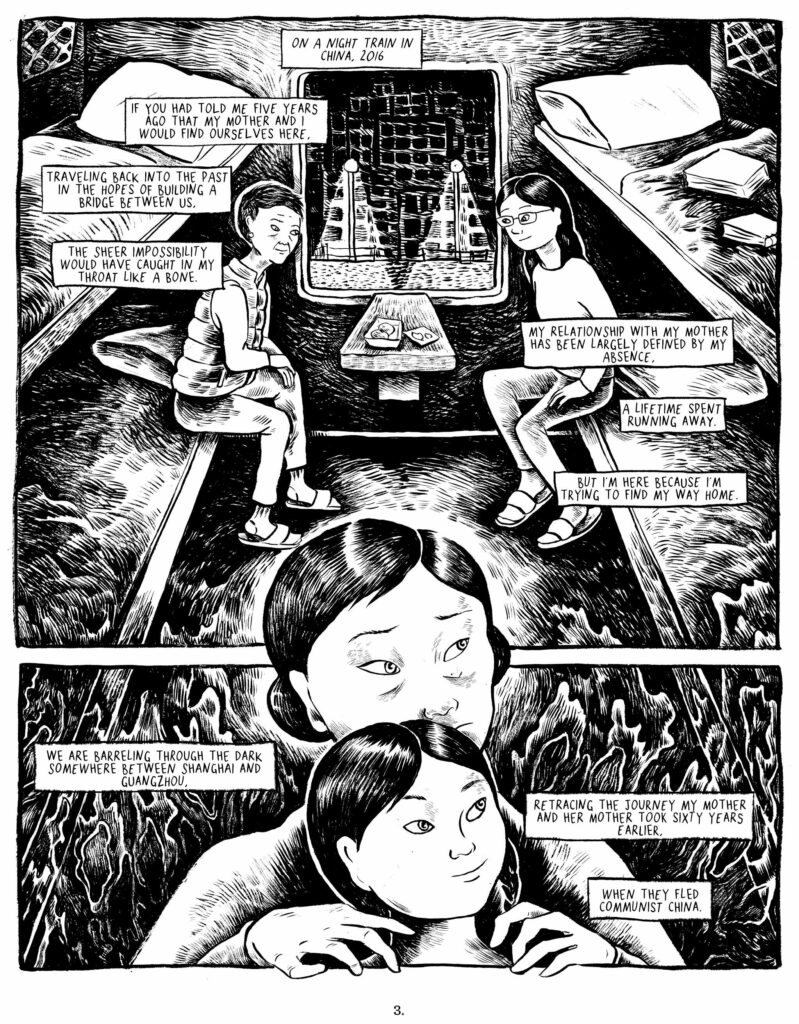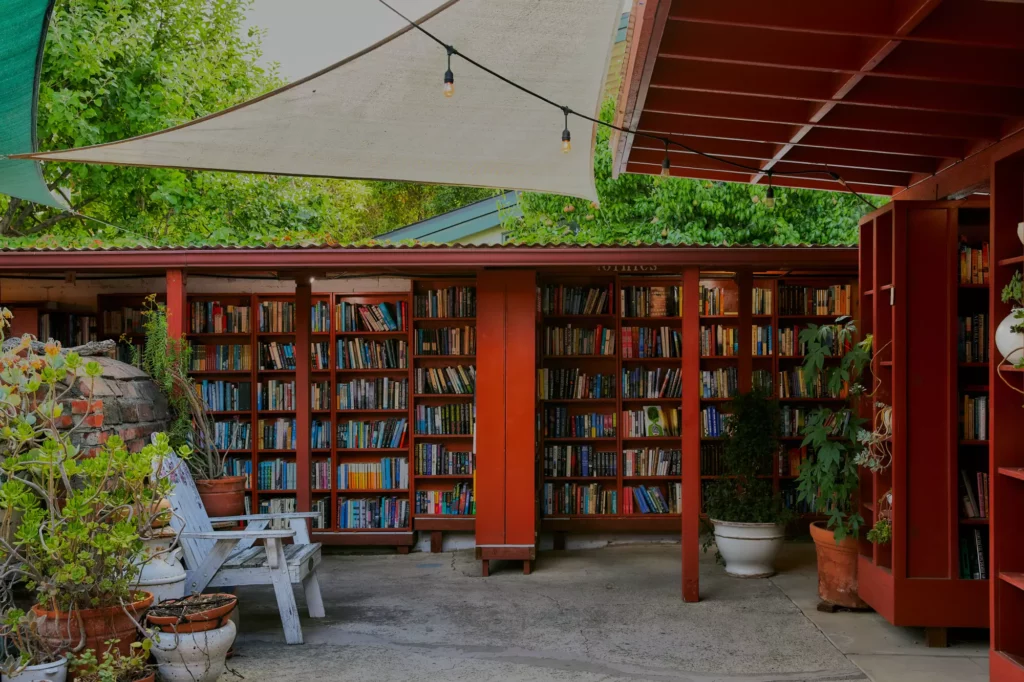A couple years ago, my friend and fellow cartoonist Tessa Hulls got a gig speaking with the Washington Humanities Speakers Bureau. Her role (which is still ongoing) involves being sent all over the state—from city libraries to rural town halls—to share her talk about women traveling solo in the early 20th century. (A talk written, I should mention, after she’d completed a 5,000-mile solo cycling trip from California to Maine. Bad. Ass.)
Hearing about her experiences with the Bureau was the closest I’d come to seeing what state-level humanities organizations were all about. I’d heard of the National Endowment for the Arts, but never really understood what it did. It turns out that there’s an entirely separate organization—the National Endowment for the Humanities—that Lyndon Johnson signed into law at the same moment in 1965.
The National Endowment for the Humanities established 56 state- and territorial-level humanities organizations all over the country in 1973—including our local branch: Oregon Humanities. These organizations all have marginally different aims, but their overarching goal is using the study of the humanities (defined very broadly) to nurture a society that is thoughtful, creative, equitable, and proactive about engaging with difference. Some organizations focus on grant-giving, others run public discussion groups or programming, and some (like Oregon’s) put out quarterly magazines. The amazing thing about this being a government-funded organization is that the magazine is free to anyone living in the state. Seriously: you give them your address and then they just mail it to you and it’s gorgeous and full of amazing writing and illustration and all kinds of good stuff. This is no fly-by-night operation.
Anyway that’s a mini history lesson about Oregon Humanities. Hopefully it explains why I was thrilled when their editor reached out to me at the end of 2020 about doing a comic on voting rights for the Spring issue. I’ve been cranking away at it over the last few months, doing a ton of research, conducting interviews, and trying to condense, condense, condense so I can cram a bunch of complex policy issues into six scant pages.
I learned an enormous amount about the history of the franchise (aka the right to vote) during this process and found that, as with most topics in U.S. history, the highlights we’re fed in school don’t tell nearly the whole story.
I ended up centering the comic on three key areas: age, immigration, and incarceration. While the organization I wanted to interview about a non-citizen voting bill ended up having to postpone their efforts until the next legislative session, I still had plenty to work with. I took a deep dive through the state’s founding documents, explored voting access wins in recent history, and spoke to advocates about lowering the state’s voting age and securing the vote for people in prison. The resulting story, which comes out in just a few weeks, is dense, but gives a pretty solid overview of the issues at play.
The reason I’m writing this, though, is to document the most valuable part of working on the project.
My friend Sarah Mirk, who’s also contributing a comic to the issue, got assigned to help edit my piece. This was great news, since we’ve worked together before and I admire her skills and ethics immensely. When I turned in the first draft of the script, I was feeling overwhelmed by the amount of information I’d ingested and worried that I wouldn’t be able to do it all justice in such a small number of pages. I was particularly scared to tackle the wide-reaching impact of racism and White Supremacy on these systems. It’s a topic that many of us have engaged with very closely in the last ten months (and beyond), and it can very easily come to feel obvious.
“Of course these systems are founded on rotten policies that disproportionately impact people of color,” said some part of my brain. “Everyone knows that.“
So I punted.
I didn’t think I’d punted, but when I look at the first draft of the script? I punted. I turned in a comic that talked about a variety of issues and historical facts and angles, but never explicitly stated that voter disenfranchisement is inextricably entangled with racist policy-making.
That unwillingness to be explicit stemmed from a scarier feeling: “This is so big and I feel like I still have so much to learn—there’s no way I’m capable of doing it right”. It’s a feeling tied to zero-sum thinking and perfectionism (both hallmark principles of White Supremacy—surprise!) that ended up pushing me to elide crucial information.
And Sarah, because she is a great editor, read the first draft and twigged this right away and said “There is a huge piece missing from this story, and I know it’s a lot to engage with and weave in, but I believe you can do this“.
It turns out I just needed permission to try. And (again, because she is a great editor) Sarah had a ton of practical suggestions for quotes, sources, and imagery to include that would make these links and themes clearer. This piece as it stands wouldn’t exist without her.
I’m not saying the comic is now The Best Thing Ever—there’s still so much that had to be left out—but the reason I wanted to write all this up (rather that doing another “Here’s the roughs and here’s the inks and here’s the colors” kind of process post like I usually do) is that I think many of us have probably been in situations like this: moments where we recognize the impact of racism, but worry that we don’t yet have enough knowledge or language or mastery to call it out.
And the role we can play for each other, as editors or just friends with eyeballs looking over a project, is to create trusted relationships where we can encourage one another to lean into that discomfort and practice. It’s very easy to feel like getting this stuff wrong will doom us, but in fact the opposite is true. We don’t get better without being willing to goof it up sometimes.
So that’s a lot of words about relatively few pictures. I’m really looking forward to sharing the whole comic when the magazine launches later this month.
P.S. Go look up your local Humanities organization. I bet you won’t regret it.


